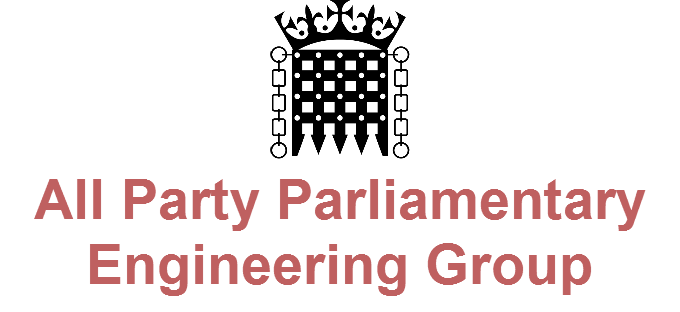All Party Parliamentary Engineering Group
8 February 2022
Discussion over lunch in the House of Lords, ‘Engineering for disaster relief in developing countries’
Chair – Professor the Lord Mair
Speakers:
- Professor Peter Guthrie OBE – Director of Research in Sustainable Development, University of Cambridge, and Founder of RedR UK
- Dr Francesca O’Hanlon – CEO and Founder of Blue Tap and EPSRC Postdoctoral Researcher
- Joshua Macabuag – Catastrophe Consultant and Structural Engineer with Search and Rescue Aid (SARAID)
Lord Mair began the meeting by thanking everyone for attending and introduced the first of the distinguished speakers, Professor Peter Guthrie OBE, Director of Research in Sustainable Development at the University of Cambridge.
Professor Peter Guthrie OBE
Peter Guthrie OBE is Professor of Engineering for Sustainable Development at the University of Cambridge. A civil engineer with geotechnical specialisation by background, Peter has worked as a practising engineer on infrastructure projects before coming to Cambridge in 2000, and has worked extensively in Africa and Asia.
Professor Guthrie reflected on how working in engineering had given him the opportunity to work all over the world. His career had been motivated by a desire to make a difference and help others, and engineering was an excellent means through which to do this.
He shared his experiences conducting work around the Vietnamese boat people crisis of the late 1970s and 1980s. Relief from disaster in this context had required better engineering. Based on this experience Peter founded RedR- Engineers for Disaster Relief in 1980 (
https://www.redr.org.uk), a charity which continues to thrive. Engineers had an important role to play in disaster relief and Professor Guthrie encouraged those present to recognise the potential to use engineering to help others.
Lord Mair then welcomed the second distinguished speaker, Dr Francesca O’Hanlon, CEO and Founder of Blue Tap and EPSRC Postdoctoral Researcher.
Dr Francesca O’Hanlon
Dr Francesca O’Hanlon studied civil and environmental engineering at Imperial College as an undergraduate. She has since worked and volunteered as a water engineer in Mexico for Engineers-Without-Borders, India and most recently, in Sub-Saharan Africa for two years with Medicines Sans Frontiers (MSF) in South Sudan and Central Africa Republic, providing water and sanitation to displaced populations.
She was in the 2013-2014 MPhil in Engineering for Sustainable Development cohort at Cambridge, and carried out her PhD research in the Centre for Sustainable Development as part of the Centre for Doctoral Training with the theme of Future of Infrastructure in the Built Environment (FIBE CDT). Her research focused on identifying the factors that influence water security in low-resource settings. She used qualitative and quantitative research techniques to assess how rainwater harvesting can contribute to improved water security. She won a National Geographic Explorers Award for her PhD research and for Blue Tap, a social enterprise that Francesca founded that 3D prints household water purifying solutions for users in urban environments.
Dr O’Hanlon opened her remarks with reflection on her work with Medecins Sans Frontieresin Central African Republic and South Sudan. These experiences taught her the importance of creative and resourceful engineering in the context of humanitarian aid and intervention.
When working with Medecins Sans Frontieres, Dr O’Hanlon’s team of engineers had vastly outnumbered the medical staff on the ground. Engineers were needed for tasks and this highlighted the vast potential to use engineering to help people.
Lord Mair then welcomed the final distinguished speaker, Joshua Macabuag, Catastrophe Consultant and Structural Engineer with Search and Rescue Aid.
Joshua Macabuag
Joshua Macabuag is a Chartered Civil Engineer with experience in disaster risk-related fields since 2008. His background is in catastrophe risk modelling, building design, and disaster response. He is a consultant for the World Bank, and for Catastrophe Model development/validation for the (re)insurance sector, with a focus on vulnerability (estimating levels of damage for buildings and other assets) and developing economies. He is also the Engineering Manager for the Urban Search & Rescue NGO SARAID, and Chair of the IStructE’s Earthquake Engineering Field Investigation Team (EEFIT), with several years’ experience of overseas deployments. He has first-hand experience across all stages of the disaster management cycle: from mitigation and insurance, to search & rescue and damage assessment (both remote and on-the ground).
Joshua shared his experiences working with Engineers Without Borders (EWB), in South Africa, as well as the work he carried out in the aftermath of the Japan tsunami and Nepal earthquake. Following the earthquake, Joshua worked to assess the structural integrity of buildings, a role that ensured the safety of thousands following disaster.
Later, he worked in the Damage Assessment Coordination Centre. This role showed the opportunity for engineers to have a long-term impact in mitigating the damage caused by future disasters. Joshua emphasized that engineering offered a wealth of opportunities in a diverse number of fields and encouraged those present to pursue engineering.
Questions and Answers
Q1 – Chi Onwurah MP
Question – Chi Onwurah MP stated her agreement with the speakers, engineering was the most caring profession. How could engineers provide support to local engineers and local science while providing aid in humanitarian contexts?
Answer – Francesca O’Hanlon
Dr O’Hanlon agreed that this was an important question, and one she had reflected on a great deal during her own work. She noted the importance of collaborative work between locals and external organizations in order to share expertise.
.
Q2 – Katie Brudenell (Teacher, St Helen and St Katherine School)
Question – In what capacity should developed nations help less developed nations?
Answer – Joshua Macabuag
Joshua noted that help should always be offered but should be provided by invitation only. He believed that the goal was always to empower local engineers and scientists to ensure that less aid would be needed the next time a crisis struck.
Q3 – Faye Banks (Visiting Professor, Royal Academy of Engineering)
Question – How can engineers adapt to local conditions and the ethical or moral dynamics of disaster zones?
Answer – Professor Guthrie
Professor Guthrie highlighted the need to accept your own cultural ignorance. Engineers needed to have awareness that local technology and local infrastructure would determine the right solution to any problem. The answer in Britain would not always be the answer elsewhere.
Q4 – David Doogan MP
Question – Is Engineering a universal language? And did the speakers have any thoughts on the politicization of development initiatives such as those on the Belt and Road Initiative?
Answer – Professor Guthrie
Professor Guthrie stated that decisions surrounding any project were political. The key was to ensure that engineering expertise had an influence on high-level decisions on projects, by engaging more fully in the political process.
Answer – Joshua Macabuag
Joshua agreed with Mr Doogan, engineering was a universal language. During his work around the world he had built excellent relationships with engineers despite them not sharing a common language.
Q5 – Nicholas Weidenbener (Student, ACS International School Cobham)
Question – How can we lower barriers to women in engineering?
Answer – Francesca O’Hanlon
Dr O’Hanlon noted that there was a definite need for more women in engineering. The industry would benefit greatly from the presence of more women and it was up to those already in engineering to champion this cause.
Q6 – Eddie Hall (Student, Crewe Engineering & Design UTC)
Question – What is the difference between response to disaster in more and less developed nations?
Answer – Joshua Macabuag
Joshua stated that there was surprisingly little difference. Preparedness for disaster did not always directly align with levels of development. He pointed to the UK struggling to deal with flooding as a good example of this.
Answer – Professor Guthrie
Professor Guthrie added that we too often underestimate the resilience of less developed nations. With limited resources, they often coped remarkably well in the face of disaster.
Q7 – Lord Mawson
Question – What could the British government and civil service learn from other parts of the world?
Answer – Professor Guthrie
Professor Guthrie noted that the exchange of knowledge was a two-way street. Engineers did not only export British knowledge but learned a great deal from the locals when working in the context of disaster relief. This collaboration is important.
Q8 – Katie Brudenell (Teacher, St Helen and St Katherine)
Question – What are alternative routes to interesting engineering jobs for those who lack an education in engineering?
Answer – Joshua Macabuag
Joshua stated that engineers were one part of a huge process to recover from disaster and mitigate the damage caused by future disasters. This process required collaboration between a diverse range of people with backgrounds in different fields. He used the example of the need for geographers who possessed a distinct skill-set from engineers.
Q9 – Kai Tribble (ACS International School Cobham)
Question – How can engineers remain mindful of the importance of sustainability when responding to disaster?
Answer – Professor Guthrie
Professor Guthrie noted that the first concern would always be the preservation of life. This came before any other considerations. He reflected on the wider issue at hand that many disasters were the result of political exploitation and climate change. The need for sustainable decision making would determine the frequency of how often disasters occurred.
Answer – Joshua Macabuag
Joshua added that sustainability was linked to resilience. Decisions had to be made that ensured disaster was less likely to occur in the future.
Q10 – Yash Kainth (Student, Uppingham School)
Question – What has been the effect of Covid-19 on disaster relief?
Answer – Francesca O’Hanlon
Dr O’Hanlon noted the innovative means that engineers have used to continue providing help during the pandemic. The transfer of knowledge now relied upon digital collaboration and through resources such as Whatsapp and Zoom she had been able to give advice to local engineers around the world. She added that an important challenge was the breakdown of supply chains. Innovative work had been carried out to bypass this issue, such as her own experience using 3D printing as a way to share resources over long distances.
Laurence Robertson MP closed discussions by thanking our distinguished speakers, excellent guests and event organizers. He was pleased to see a full house in attendance for such an important discussion. The speakers had shown the diversity of work possible within a career in engineering and he thanked them for their crucial work that had saved lives.
Lord Mair echoed these comments. He thanked the event sponsors Thales UK, the Institution of Civil Engineers, and the 1851 Commission, and noted that the next meeting of the group would be held on 10 May 2022.


